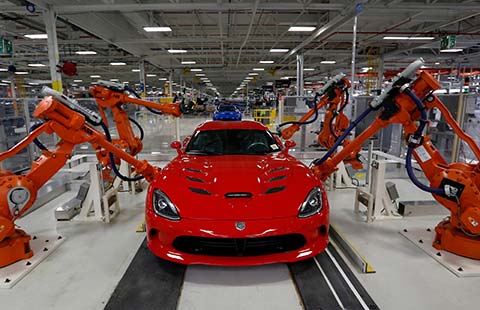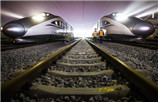Tough times in the bicycle rental business
By Zheng Jinran and Wang Xiaodong (China Daily) Updated: 2012-09-24 02:07"There were many reasons for its poor performance, one being that only a few residents registered for the service," Zhao Jie, director of traffic for the China Academy of Urban Planning and Design, told China Daily.
"Allowing these companies to put advertisements on bicycles or docking stations is an effective way to increase profits," Zhao said. "It is impossible for a private company to run such a business based purely on social welfare."
By mid-September, about 3,200 smart cards had been issued to residents in Beijing's Chaoyang district, Mu said. Foreigners can also register for a card from October.
In Hangzhou, the operating cost of the public bicycle system is about 60 million yuan. Selling advertising space could cover around half of this cost, according to Friends of Nature.
Shift to cars
As the use of cars has increased across China, bicycle use has declined. The proportion of people cycling in Beijing has dropped to 16 percent, down from 30 percent in 2005.
"I don't ride a bicycle because it is not safe. On many roads there is no specific bicycle lane, which makes me nervous when there is a lot of traffic," said Chen Yang, 24, a student at Beijing Language and Culture University.
"With more public bicycles in service, the government should also spend more effort to tackle traffic violations such as motor vehicles occupying bicycle lanes," Mu said.
The government should implement strict rules to control the increase in cars, said Zhao.
Government departments in many cities have failed to promote the use of bicycles, said Li Bo, a founding member of Friends of Nature.
"Plans for developing the system have not been well implemented," he said.
The way people travel needs to be changed, Zhao added, with public transport encouraged for journeys of less than 5 kilometers.
If the government invests in public transportation, it could create a positive cycle, with more people taking public transport as a result of improvements stimulating even greater investment, he said.
In Hangzhou, the public bicycle network is an integral component of the public transport system, accounting for at least 30 percent of it.
To promote a green and healthy environment, government agencies, including the Ministry of Housing and Urban-Rural Development, have issued goals on walking and public bicycles in the city. Their aim is that by the end of 2015, at least 45 percent of all journeys in the city of more than 10 million should be by foot or bicycle.
Contact the writers at zhengjinran@chinadaily.com.cn and wangxiaodong@chinadaily.com.cn
- CPPCC National Committee members confident for China's economy
- Fu Chengyu: anti-corruption campaign needed for oil industry
- No hard landing for China's economy: CPPCC National Committee member
- Sinopec's ex-chairman with his Huawei smartphone
- China central bank continues to ease liquidity strain
- Encouraging progress in economic rebalancing: Sinopec's ex-chairman
- China's nursing home beds rise to 6.7 million in 2015
- China's FDI grows in Jan-Feb
















